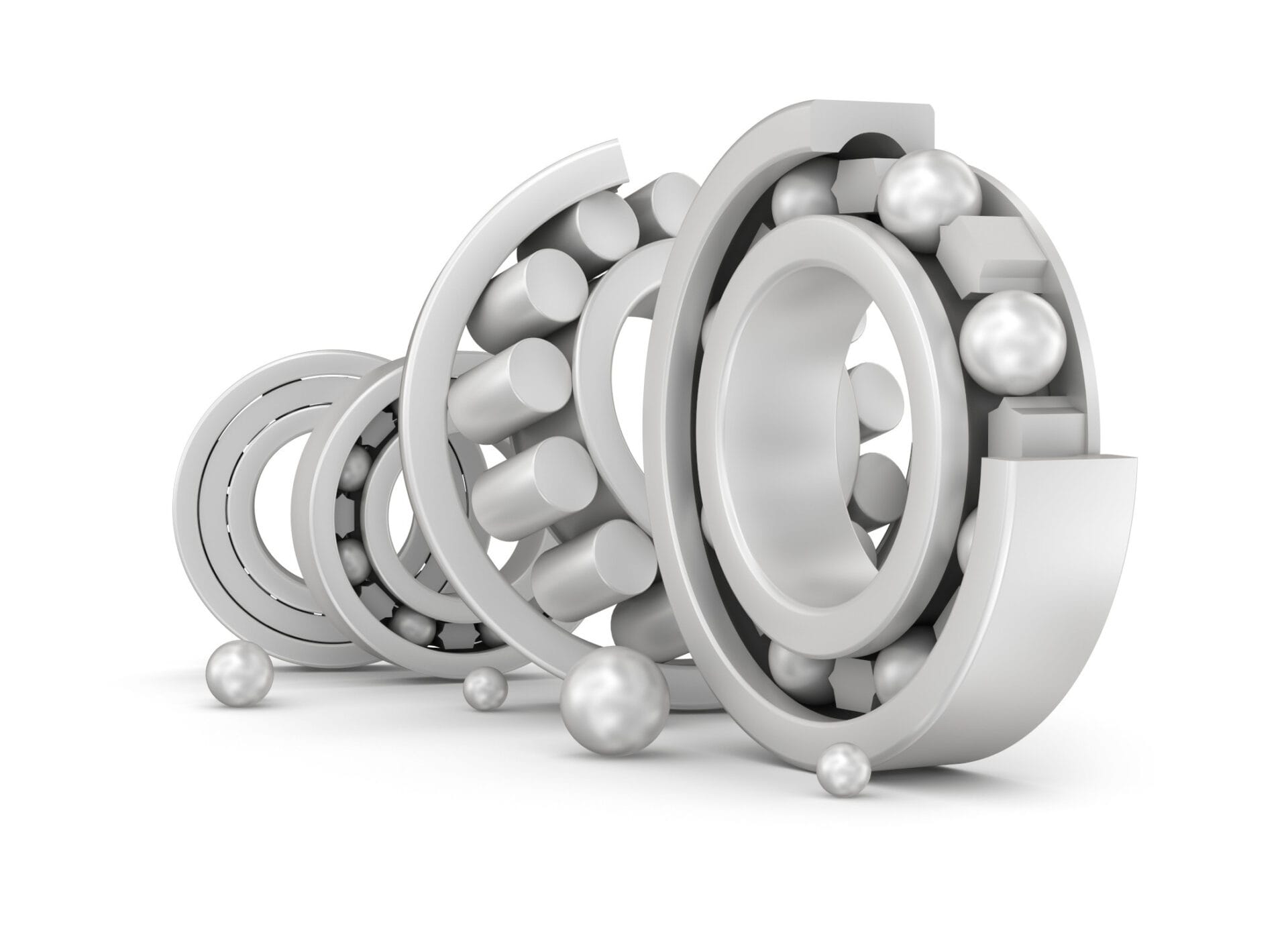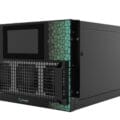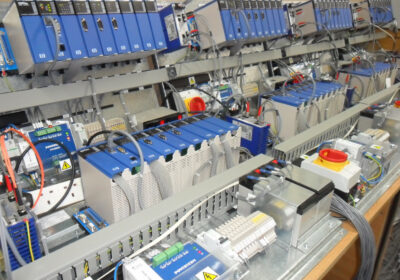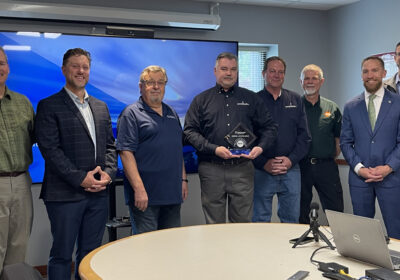~ Enhancing sustainability and resilience in European manufacturing ~
As industries align with the European Commission (EC)’s report Industry 5.0: Towards a Sustainable, Human-Centric and Resilient European Industry, predictive maintenance will be integral to Industry 5.0’s more sustainable, human-centric ethos. Here, Chris Johnson, managing director at SMB Bearings explains how, by preventing failures, reducing maintenance costs, and extending component lifespan, sensor-equipped bearings will be at the forefront of smart maintenance and supporting Industry 5.0 goals.
The concept of Industry 5.0 emphasises a sustainable, human-centric, and resilient approach to industrial innovation. The idea is to better integrate social and environmental European priorities into technological innovation and to shift the focus from individual technologies to a systemic approach.
The EC’s report outlines six categories for Industry 5.0. They include individualised human-machine-interaction, bio-inspired technologies and smart materials, digital twins and simulation, and data transmission, storage, and analysis technologies. Artificial Intelligence (AI) is another category, as are technologies for energy efficiency, renewables, storage and autonomy.
Predictive maintenance will be integral to these initiatives, helping determine the condition of equipment and to estimate when maintenance should be performed. Importantly, this occurs while the machine is in operation, which limits any unnecessary downtime and reduces the probability of unexpected failures.
Smart maintenance
The idea of predictive maintenance has existed formally in industry since the 1990s. However, approaches are becoming more sophisticated, with generative AI offering a way forward due to its powers of advanced analytics. One example is offered by McKinsey in its report, The generative AI opportunity in airline maintenance: “On the shop floor, in hangars, and at line maintenance stations, aircraft technicians spend a substantial amount of time researching and troubleshooting problems.”
The report continues, “Gen AI could streamline this significantly by allowing workers to have a “conversation” with their data.” In other words, the operator could interact with their “digital assistant” — for instance, “A compressor is leaking. What might be the issue?” The Generative AI could then offer a solution based on a variety of information sources, including maintenance manuals or data from previous repairs. McKinsey reports that a similar system is already in use by one major airline.
Meanwhile, more manufacturers are making use of Industrial Internet of Things (IIoT) technologies like sensors to remotely monitor their processes and translate physical actions from machines into digital signals. These technologies are becoming increasingly affordable and offer extensive possibilities, whether for monitoring larger processes or smaller components — like bearings.
Modern manufacturing relies heavily on bearings. They are used extensively in almost every type of rotating equipment. The type of bearing should be carefully matched to the application requirements and operating conditions. For example, deep groove ball bearings may be used in high-speed machinery or in electric motors, whereas thrust ball bearings may be more suited to turbines and heavy machinery.
IIoT-based smart bearings can self-diagnose impending faults and failures, based on data from sensors integrated into the housing of the bearing itself. These advanced bearings provide real-time data on temperature, vibration, and load, enabling predictive maintenance and enhancing energy efficiency across various sectors.
Bearings with smart sensor technology can also help drive industries towards more resilient operations and are now being increasingly adopted by industry. Smart bearings can be affixed to technologies to gather various data points.
Imagine a scenario where deep groove ball bearings with integrated sensors are employed in an automated manufacturing facility. In this setting, these intelligent bearings are installed within the machinery responsible for precise movements and control. As the equipment operates, the bearings continuously monitor factors such as speed, acceleration, and direction of rotation.
Through real-time data acquisition facilitated by the integrated sensors, the machinery can detect any deviations from the norm, allowing for immediate adjustments or alerts for preventive maintenance. This application ensures smooth operation, optimises performance, and minimises downtime, ultimately enhancing productivity and reliability in the manufacturing process.

Applications for smart bearings
The advantages of smart bearings with built-in sensors have seen them gain popularity by being widely used in automotive anti-lock braking systems (ABS) for years. In early systems, the sensors were mounted near the tires, exposing them to contamination such as water, dirt, and grit. However, modern systems have integrated the sensor into the bearing housing which protects it from the elements.
For example, SKF manufactures groove ball bearings with integrated sensors that are capable of measuring various factors such as speed, acceleration, number of revolutions, and direction of rotation. These bearings are utilised in applications including electric motors, gearboxes, linear actuators, and shafts, where precise control and monitoring are essential.
The bearings can be integrated with a second sensor to determine the direction of rotation, allowing for comprehensive monitoring of machinery movements. Furthermore, the bearings are designed to withstand a wide temperature range (minus 40 to plus 120 degrees Celsius), making them suitable for industrial environments. This data aligns with the scenario described, showcasing the practical application of smart bearings in an automated manufacturing facility for continuous supervision and optimised equipment operation.
Smart bearings with built-in technology also have potential uses in motors, pumps, and fans, which are essential parts of many machines. For example, if dirt contaminates a fan’s blades, it causes vibration. Detecting these vibrations early can help adjust the system quickly, reducing the risk of equipment failure and costly repairs. In industries like mining, if a fan supplying fresh air breaks down and air quality suffers, all work stops immediately.
Furthermore, smart bearings can be part of the “data transmission, storage, and analysis technologies” outlined in the EC’s report. Bearings with integrated sensors can send signals to an external monitoring unit. This unit records performance data and predicts how much longer the component will last. Operators can then receive alerts in real-time wirelessly, removing the need to be on the shop floor constantly as information can be accessed remotely.
Going forward, and in tandem with the increased used of IIoT sensors and evolving technologies like generative AI, industrial bearings will remain essential to the effective performance of plant machinery. As the EC’s vision for Industry 5.0 takes shape, integrating sustainability, human-centric values, and resilience into industrial practices, sensor-equipped smart bearings will emerge as a pivotal technology.
To learn more about how SMB Bearings’s specialty industrial bearings support predictive maintenance, visit its website.








